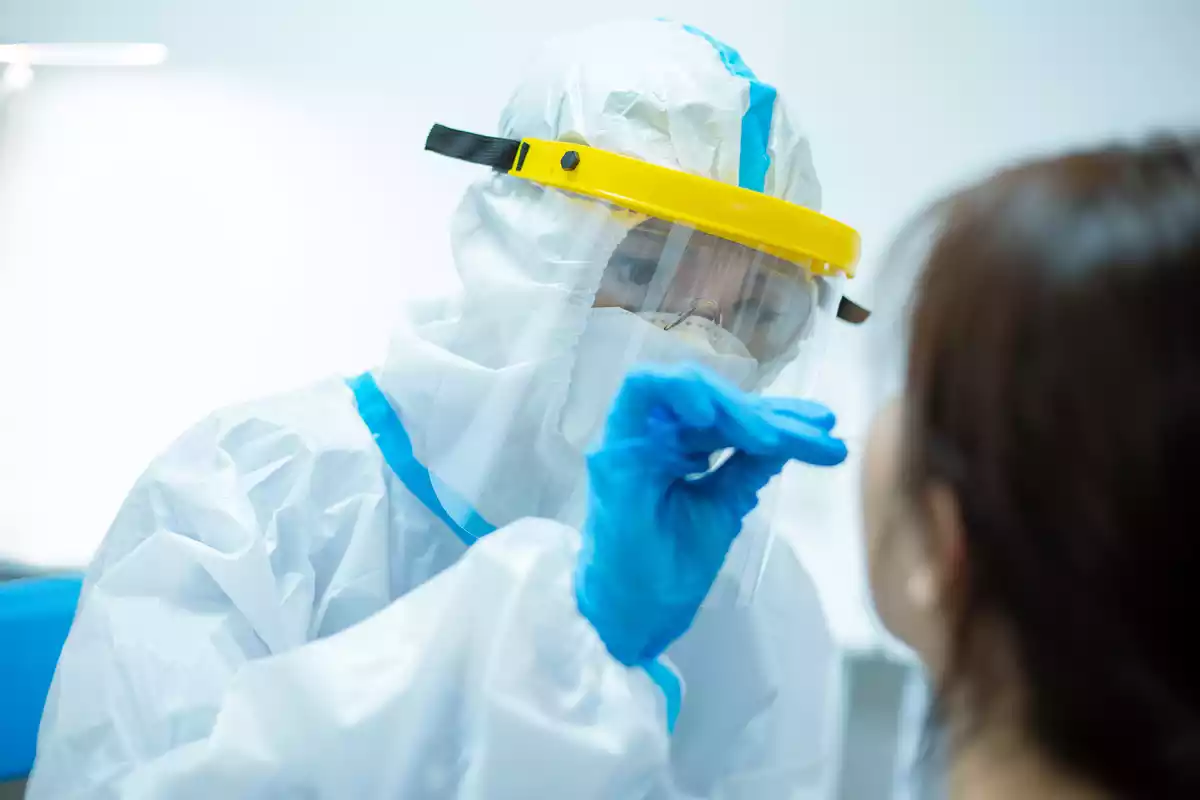One of the main dangers of the mediatization of information generated around the drama is the capacity of alertness generated around a specific topic, and one of the most controversial this year has been the vaccination plan. The news announcing the ability of the virus to cause thrombosis has caused fear in many people, one of whom, in the Netherlands, refused to undergo the prevention plan and ended up in the ICU because of coronavirus.
The dose in question came from an AstraZeneca batch and as a result of this case, health specialists in this European region wanted to release a statement accompanied by an X-ray of the man's lungs. "Today, the first patient who had refused to receive the AstraZeneca vaccine was admitted to our hospital after all the commotion in the press. We heard the tremendous regret in his voice and the despair in his eyes. The virus has attacked him and it could have been prevented" commented the document issued by the medical specialists.
In fact, the statement is not so much intended to raise public awareness as to the authorities, since they have frozen a batch of 80,000 Janssen doses while awaiting the certification issued by the European Medicines Agency. Another of the requests made by the group is to extend the use of AstraZeneca to a wider age range since at the moment it is relegated to people under 60 years old.
Thrombi and their impact on vaccination plans
It is the main threat that has truncated the estimated period for immunizing the majority of the world's population, the great blow to prevention measures. Moreover, it does not extend only to AstraZeneca's vaccine, since the one manufactured by Janssen and distributed in the United States has six cases of patients with blood clotting. With all the dust that has been generated around the controversy about the different vaccines, the public continues to generate greater skepticism.
According to surveys, 42% of the over-60s in the Netherlands remain unvaccinated because they reject the possible side effects that may result from the doses, according to a survey launched by the I&O.
The authors of this statement are the staff of the Zuyderland medical center, in the south of the European territory, which states that "the risk of serious damage caused by COVID-19 is ten times higher for people aged 40 and 70 times higher for those who are 60 than the risk of serious damage due to thrombosis".
"We have cared for more than 3,000 patients with coronavirus"
This is what the health workers say, while stressing that the political alternative is to open as soon as possible all the elements linked to the economy and which would jeopardize the de-escalation of the pathogen. For their part, members of the Dutch government have determined that the curfew will be lifted in the next few weeks, specifically after April 28th.
Faced with the possibility of a new wave of infections, "Employees are legitimately wondering why they should continue to provide care without adequate protection, while the vaccines are waiting in the refrigerator," say the medical community. One of the harshest warnings proclaimed by the authors of the document is the use of purchased AstraZeneca doses without institutional permission. They do not understand how they can remain in the refrigerator when new cases of COVID will arrive again today. On a war footing, they warn that they will no longer "voluntarily and knowingly cooperate with avoidable damage".
[This is a translation of the original article "Un hombre sano rechaza la vacuna por temor a un trombo y acaba ingresado en la UCI" published in espanadiario.net]

